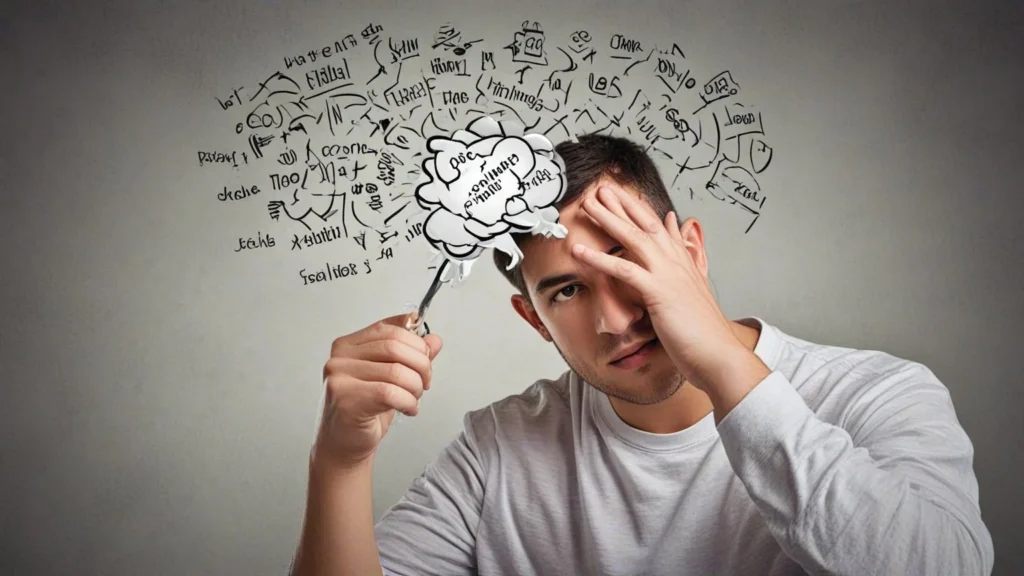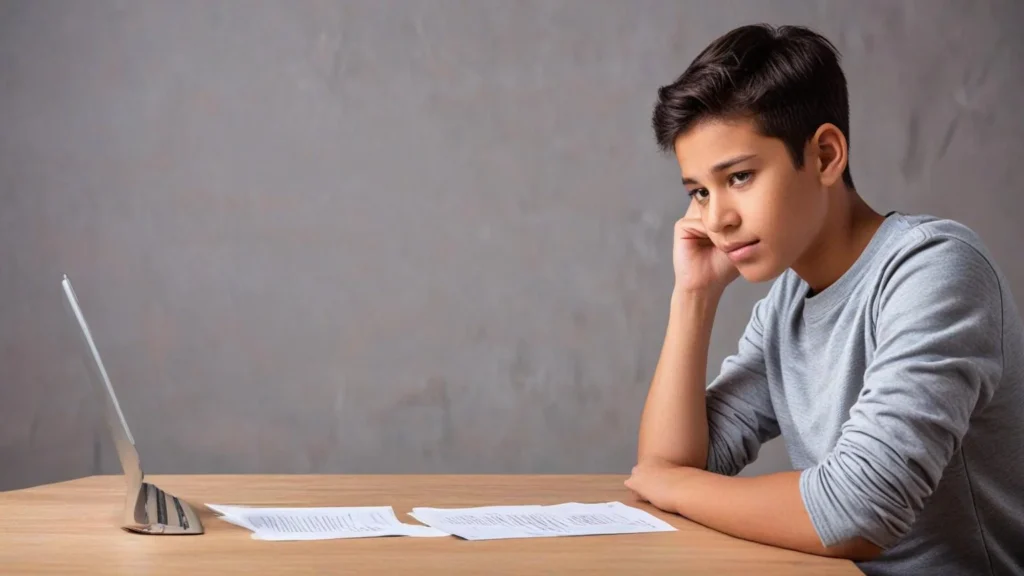Critical thinking is a vital skill that enhances our ability to analyze information, make decisions, and solve problems. It’s crucial for academic success, professional growth, and personal development. In this article, we will explore various strategies to develop critical thinking skills, answer common questions about the steps involved, and provide actionable tips to help you become a more effective thinker.
What Are Critical Thinking Skills?
Critical thinking skills involve the ability to think clearly and rationally about what to do or what to believe. They include analyzing, evaluating, and synthesizing information to make well-informed decisions. These skills are essential in every aspect of life, from solving complex problems at work to making personal decisions.
How Can You Develop Critical Thinking Skills?
Developing critical thinking skills involves a combination of practice, reflection, and application. Here’s a comprehensive approach to developing these skills:
Question Assumptions
One of the first steps in developing critical thinking is questioning assumptions. Don’t take information at face value; instead, ask questions about why things are the way they are.
- Ask Questions: Challenge existing beliefs and consider alternative viewpoints.
- Example: If you read that a new technology is revolutionary, ask why it’s considered revolutionary and what evidence supports this claim.
- Example: If you read that a new technology is revolutionary, ask why it’s considered revolutionary and what evidence supports this claim.
- Evaluate Sources: Check the credibility and reliability of the sources of your information.
- Example: Verify that a news article is from a reputable news source before accepting its claims.
Analyze Information Thoroughly
Break down information into parts to understand it better.
- Identify Key Concepts: Focus on the main ideas and arguments presented.
- Example: When reading a research paper, outline the main hypothesis, methods, results, and conclusions.
- Example: When reading a research paper, outline the main hypothesis, methods, results, and conclusions.
- Compare and Contrast: Look for similarities and differences between different pieces of information.
- Example: Compare different theories about a historical event to understand varying perspectives.
Practice Active Listening
Active listening involves fully concentrating on what is being said rather than just passively hearing the message.
- Listen Intently: Pay full attention to the speaker and avoid interrupting.
- Example: During a discussion, focus on understanding the speaker’s points rather than preparing your response.
- Example: During a discussion, focus on understanding the speaker’s points rather than preparing your response.
- Reflect and Clarify: Summarize what you have heard and ask for clarification if needed.
- Example: “So what I’m hearing is that you believe X because of Y?”
Develop Problem-Solving Skills
Problem-solving is a core component of critical thinking.
- Define Problems Clearly: Identify the root cause of issues rather than just symptoms.
- Example: Instead of addressing a team’s lack of productivity, explore underlying issues like poor communication or unclear goals.
- Example: Instead of addressing a team’s lack of productivity, explore underlying issues like poor communication or unclear goals.
- Generate Solutions: Think of multiple solutions and evaluate their effectiveness.
- Example: Brainstorm various strategies to improve team collaboration and assess which ones are most feasible.
Engage in Reflective Thinking
Reflective thinking involves evaluating your own thought processes and decisions.
- Assess Your Own Thinking: Regularly review and reflect on your thought processes and decisions.
- Example: After completing a project, evaluate what strategies worked well and what could be improved.
- Example: After completing a project, evaluate what strategies worked well and what could be improved.
- Seek Feedback: Ask others for their opinions on your thinking processes.
- Example: Request feedback from colleagues on your problem-solving approach.
What Are the 7 Steps to Improve Critical Thinking Skills?

Improving critical thinking skills involves a structured approach. Here are seven steps to enhance your critical thinking abilities:
Identify the Problem or Question
Clearly define the issue or question you are addressing.
- How to Do It: Break down the problem into specific questions.
- Example: “What are the causes of high employee turnover in this company?”
Gather Relevant Information
Collect information from credible sources to understand the issue better.
- How to Do It: Research using books, articles, and expert opinions.
- Example: Read industry reports and conduct surveys to gather data on employee turnover.
Analyze the Information
Examine the information to identify patterns, strengths, and weaknesses.
- How to Do It: Look for trends and discrepancies in the data.
- Example: Compare turnover rates across different departments.
Evaluate Arguments and Evidence
Assess the validity of the arguments and evidence you have collected.
- How to Do It: Check the reliability and relevance of your sources.
- Example: Evaluate whether the data sources used in a study are up-to-date and reliable.
Develop and Consider Alternatives
Generate multiple solutions or viewpoints and weigh their pros and cons.
- How to Do It: Brainstorm and evaluate different options.
- Example: Consider various strategies for reducing turnover, such as improved benefits or better management practices.
Make a Decision
Choose the best solution based on your analysis and evaluation.
- How to Do It: Decide on the most effective strategy or solution.
- Example: Select the best approach for addressing high turnover, such as implementing a new employee engagement program.
Reflect on the Decision
Review the decision-making process and outcomes to learn from the experience.
- How to Do It: Evaluate what worked and what didn’t.
- Example: Assess the effectiveness of the new engagement program in reducing turnover.
What Are the 5 Steps to Improve Your Critical Thinking?
Here are five focused steps to enhance your critical thinking skills:
Question Your Beliefs
Challenge your own beliefs and assumptions.
- How to Do It: Ask yourself why you hold certain beliefs and consider opposing viewpoints.
- Example: If you believe a certain political policy is effective, investigate arguments against it.
Seek Out Diverse Perspectives
Expose yourself to different viewpoints and opinions.
- How to Do It: Read articles from various sources and engage with people who have different opinions.
- Example: Discuss controversial topics with friends who have different perspectives.
Reflect on Your Thinking Process
Analyze how you arrive at conclusions.
- How to Do It: Keep a journal of your thought processes and decisions.
- Example: Write about why you made a certain decision and whether you considered alternative options.
Engage in Discussions
Participate in debates and discussions to practice critical thinking.
- How to Do It: Join debate clubs or discussion groups.
- Example: Engage in debates about current events or philosophical issues.
Read and Write Regularly
Regular reading and writing enhance critical thinking skills.
- How to Do It: Read books, articles, and essays; write summaries and critiques.
- Example: Write book reviews or summaries of academic articles.
What Are the 6 Steps to Acquire Critical Thinking Skills?

Here are six essential steps to help you acquire and develop critical thinking skills:
Learn to Analyze Arguments
Develop the ability to dissect and evaluate arguments.
- How to Do It: Break arguments into premises and conclusions.
- Example: Analyze whether the reasons given in an argument logically support the conclusion.
Identify Cognitive Biases
Recognize and mitigate biases in your thinking.
- How to Do It: Be aware of common cognitive biases like confirmation bias.
- Example: Challenge your own biases by seeking out contradictory evidence.
Develop Research Skills
Improve your ability to conduct thorough and effective research.
- How to Do It: Learn research methods and techniques.
- Example: Use academic databases to find credible sources for research projects.
Apply Critical Thinking to Everyday Situations
Use critical thinking skills in daily life.
- How to Do It: Apply techniques like questioning assumptions and analyzing information to everyday decisions.
- Example: Evaluate the best options for a major purchase by comparing products and reading reviews.
Practice Problem-Solving Techniques
Regularly practice different problem-solving techniques.
- How to Do It: Use methods like brainstorming and root cause analysis.
- Example: Solve a challenging puzzle or problem to develop your problem-solving skills.
Engage in Metacognition
Think about your own thinking processes.
- How to Do It: Reflect on how you approach problems and decisions.
- Example: Consider whether your problem-solving methods are effective and how they can be improved.
Summary Table of Strategies for Developing Critical Thinking Skills
| Strategy | Description |
|---|---|
| Question Assumptions | Challenge existing beliefs and explore alternative viewpoints. |
| Analyze Information Thoroughly | Break down information and compare different pieces. |
| Practice Active Listening | Focus on understanding and reflecting on what is being said. |
| Develop Problem-Solving Skills | Identify problems, generate solutions, and evaluate options. |
| Engage in Reflective Thinking | Review and reflect on your own thought processes and decisions. |
| Identify the Problem or Question | Clearly define the issue or question you are addressing. |
| Gather Relevant Information | Collect information from credible sources. |
| Analyze the Information | Examine and evaluate information for patterns and reliability. |
| Evaluate Arguments and Evidence | Assess the validity of arguments and evidence. |
| Develop and Consider Alternatives | Generate and evaluate different solutions or viewpoints. |
| Make a Decision | Choose the best solution based on analysis and evaluation. |
| Reflect on the Decision | Review the decision-making process and outcomes. |
| Question Your Beliefs | Challenge personal beliefs and consider different perspectives. |
| Seek Out Diverse Perspectives | Expose yourself to various viewpoints and opinions. |
| Reflect on Your Thinking Process | Analyze how you arrive at conclusions and decisions. |
| Engage in Discussions | Participate in debates and discussions to practice critical thinking. |
| Read and Write Regularly | Enhance skills through regular reading and writing. |
| Learn to Analyze Arguments | Break arguments into premises and conclusions. |
| Identify Cognitive Biases | Recognize and mitigate biases in your thinking. |
| Develop Research Skills | Improve research methods and techniques. |
| Apply Critical Thinking to Everyday Situations | Use critical thinking skills in daily life. |
| Practice Problem-Solving Techniques | Regularly practice problem-solving methods. |
| Engage in Metacognition | Reflect on your own thinking processes and strategies. |
Conclusion
Developing critical thinking skills is essential for academic success, career advancement, and personal growth. By questioning assumptions, analyzing information, and practicing problem-solving techniques, you can enhance your ability to think clearly and make well-informed decisions.
By following the seven steps to improve critical thinking skills, practicing the five focused strategies, and applying the six steps for acquiring critical thinking skills, you can cultivate a mindset that is both analytical and reflective.
Whether you are a student, a professional, or someone seeking personal development, mastering critical thinking skills will empower you to tackle challenges and make thoughtful decisions in all areas of your life.

